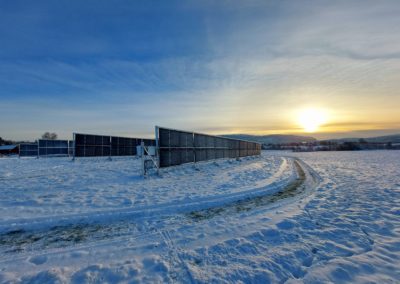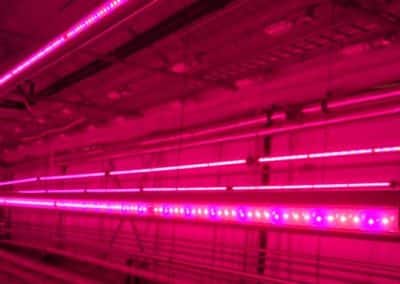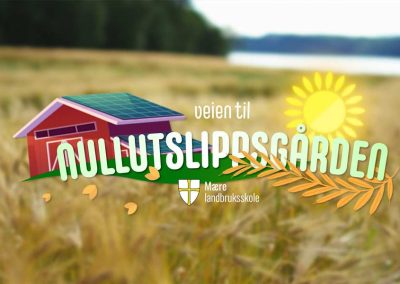The cow has four stomachs and chews cud, and it is this characteristic that causes cattle to emit methane. This is a natural process in nature that has nevertheless become a challenge for today's society.
When ruminants digest their feed, methane gas (CH4) from the intestine (in manure) and from the rumen (from rap). Methane (CH4) is one of the most important greenhouse gases and it is estimated that agriculture accounts for over 50 % of methane emissions in the world.
Production of methane in the cow is an energy-demanding process. Methane emissions are essentially a loss of energy.
Additives in the feed
Seaweed, algae, biochar or enzymes can produce less methane from the rumen
Trials are underway all over the world to find out whether substances can be added to the feed that reduce methane emissions from cattle and small livestock. Many different additives have shown great effect in "in vitro experiments" (in test tubes), but few have so far shown to produce consistent effects in long-term animal experiments. However, researchers have obtained good results with a substance that prevents the last step in methane formation in the rumen (3-NOP). In the climate game, we have chosen 15% reduction of methane from rumen and intestine as standard, but we see from the articles below that others are much more optimistic.
Reduce wastage of forage
From the time the grass is placed in round bales, placed in a silo or dried into hay until it is eaten by the cow, we get some waste of feed. The grass can be lost in connection with mowing, in the silage process, destroyed during storage or destroyed by the cow on the feed tray. We can influence feed wastage by doing the job of taking care of the grass correctly, having good storage and ensuring that the cow gets good forage that is eaten on the feed tray. If we manage to take better care of the grass and avoid wastage, greenhouse gas emissions per unit produced will decrease.
Better forage
Early harvested grass gives increased production and less methane emissions from digestion. When the grass is harvested earlier (above 0.90 Fem/kg TS), this can reduce climate emissions due to two mechanisms. 1. Lower methane production from the rumen due to higher digestibility. 2. Higher performance and thus more kg of milk to spread the greenhouse gas emissions over.
Better fertility and animal health
An animal that lives well and has good health and fertility will produce more milk and meat. When an animal becomes ill or it takes longer to have a calf in the cow, production will be reduced. If you improve animal health and fertility in your herd, there will be more kg of meat and milk to spread the greenhouse gas emissions over. At the same time, you save money and worries in the barn.
Improve breeding in the herd
Through breeding, over many decades, we have bred a cow with better health, while at the same time production has increased. This provides better finances for the farmer and lower climate emissions per kg of milk and kg of meat. The Norwegian NRF cow is also a combination cow that produces both milk and meat, and means less climate emissions per unit produced. When you carry out active breeding work in your own herd, you thus contribute to reducing greenhouse gas emissions from your herd. Now the breeding organization GENO is also in the process of breeding for methane emissions to make the cow even more sustainable with a lower emission.
Age at first calving and increased number of lactations
The age of a cow calving for the first time in Norway is almost 26 months. If the cow has her first calf at 24 months, we will save emissions for 2 months where the heifer has no production. In this way, we will get less emissions per kg of meat and per liter of milk that the cow produces. The same will happen if the cow lives longer. The emissions that occur before the animal enters production are distributed over several liters of milk and meat, and the emissions per unit produced decrease.
See video about
Early mowing should make the cow more climate-friendly
Webinar
Methane inhibitors with Harald Volden and Eirik Selmer-Olsen
Here you can read more about
Geno on sustainability and social responsibility
Discussion
News from TV2 and Q-dairies about the addition of 3-NOPi lined



